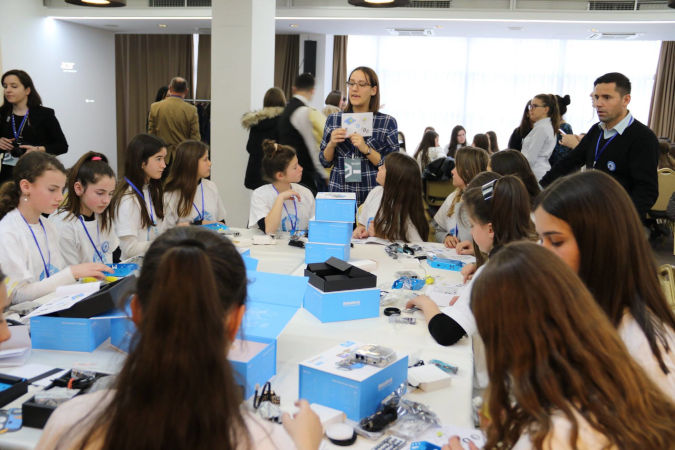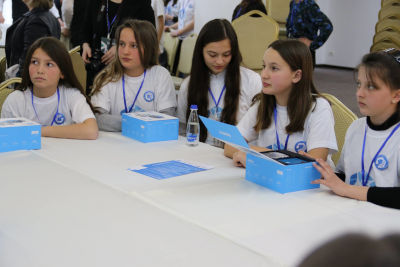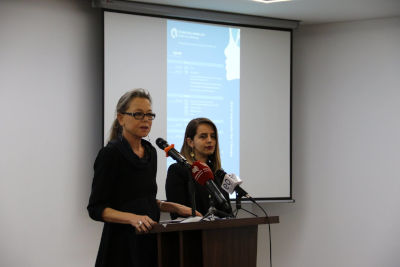Girls innovate for change in Kosovo
Date:

At a time when technology and innovation shape the way people live across the globe, it should be ensured that these advancements positively impact the lives of everyone, in particular women and girls. Specific attention should be put on the role that women play in technological advancement, so that they take on the role of active innovators. This was the underlying message of the event organized in Kosovo[1] on the occasion of International Women’s Day.
The UN Women Office in Kosovo, in partnership with IPKO Foundation, UNICEF, UN Kosovo Team, Agency for Gender Equality and SIDA, organized “Girls Innovate for Change” workshop with the aim of breaking barriers in traditionally male dominated professions.
On 8 March, fifty girls from ten municipalities around Kosovo accompanied by their teachers travelled to Pristina to participate in this workshop. Throughout the day, the girls took part in different skill-building activities related to Information and Communication Technology (ICT) which allowed them to engage in and acquire skills related to robotics, 3D design and printing, programming as well as web design. The girls gathered to set a new standard of what young women can achieve if given the space and resources.

“I feel thankful to have been part of this workshop because I am very passionate about technology, and I try to be part of technological innovations every day. As a young girl, I want to be the creator of technological developments, and not only its user,” said Olta Komoni,13, one of the participants in the workshop.
The participation rate of women in technology in Kosovo is considerably low (less than 30 per cent) as jobs in ICT are regarded traditionally as male professions, while long-standing biases and gender stereotypes are steering girls and women away from science and technology related fields.
Yllka Komoni, one of the accompanying teachers said “I always encourage girls that they can achieve a lot in this field if they want to, as I believe that this will lead to a disappearance of traditional stereotypes. ICT is not a field only for men, as it is traditionally considered. I am a woman and I firmly believe that activities like these will lead to a change in perceptions.”
On this year’s International Women’s Day, the importance of technological investment in the power of young women and girls as fundamental to breaking the intergenerational transmission of poverty, violence, exclusion and discrimination by achieving equitable and sustainable development options was emphasized by the speakers.

In her speech, Ms. Ulrika Richardson, United Nations Development Coordinator stated, “In my lifetime, I witnessed how inclusion of girls and women accelerated societal changes, innovation and technology. Now, I recognise these same energies here in Kosovo society building, making the qualitative shift towards achieving equal representation of women and girls in areas where they were - and still are - underrepresented; education, jobs, politics, innovations and of course technology!"
Throughout the workshop the centrality of women’s and girl’s ideas and experiences was highlighted as a vital requirement in building inclusive societal systems, efficient services and sustainable infrastructure to accelerate the achievement of the Sustainable Development Goals and gender equality, through technology.
[1] All references to Kosovo on this website shall be understood to be in full compliance with UN Security Council Resolution 1244 (1999).